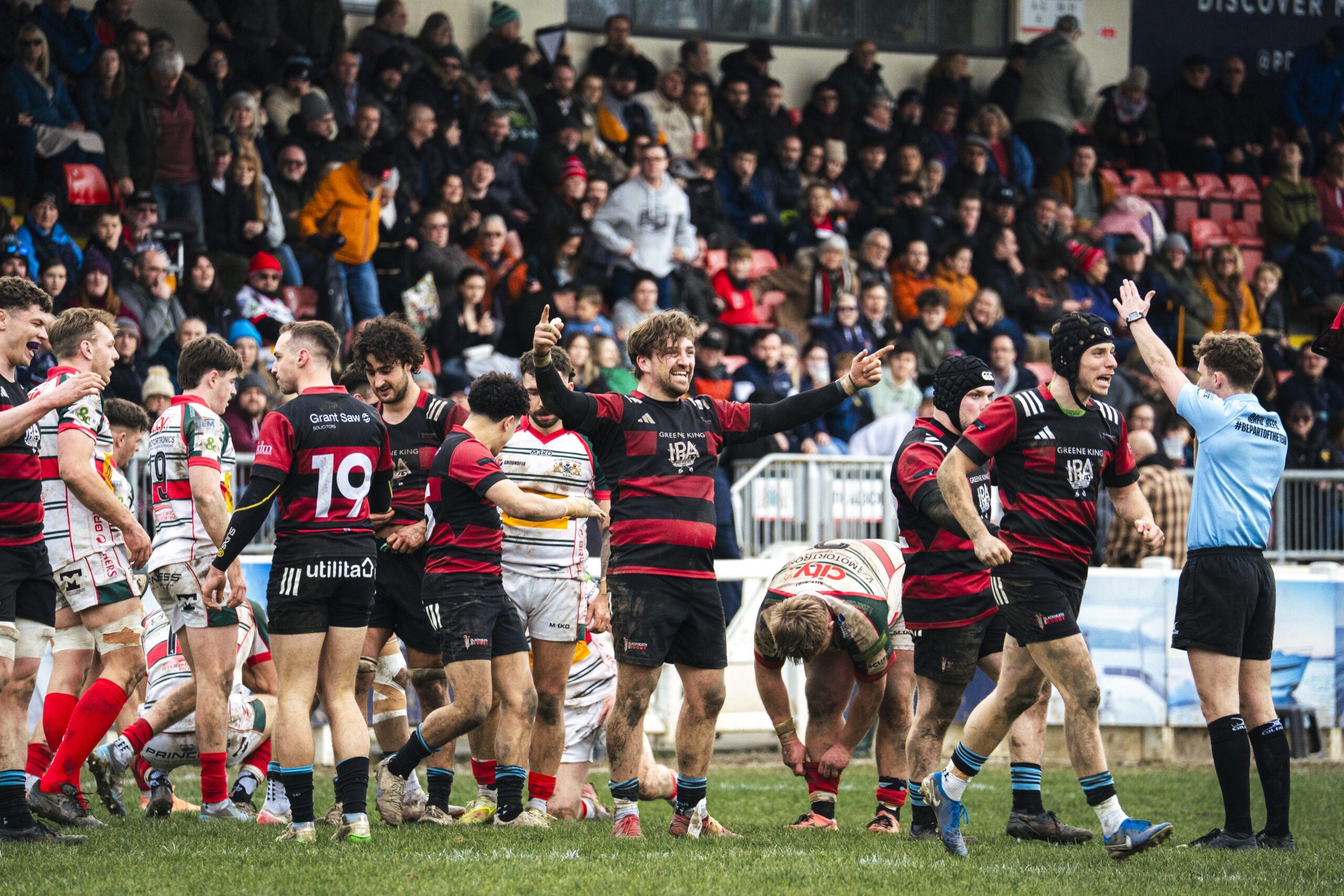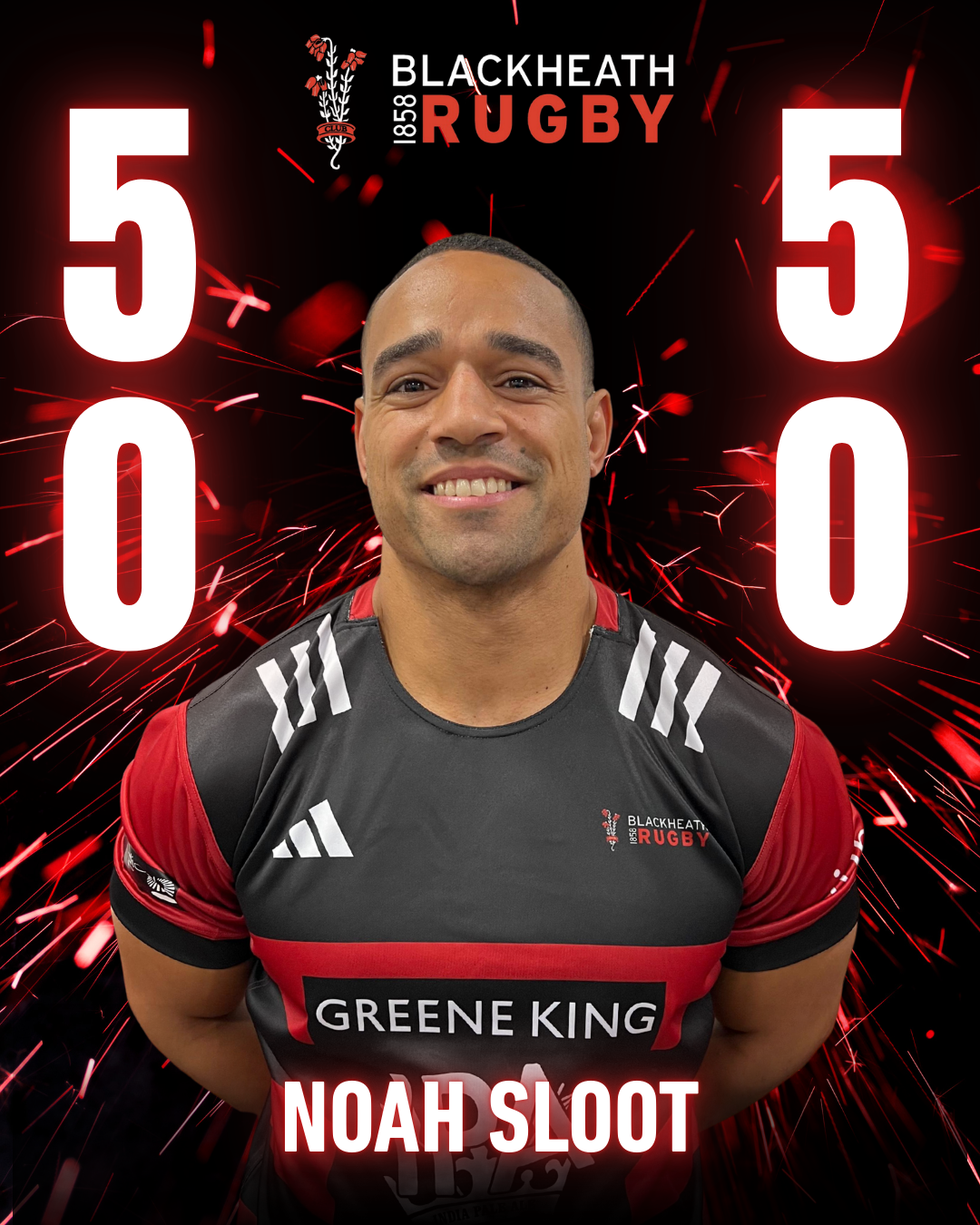
stupidity
/stjuːˈpɪdɪti/
noun
1. behaviour that shows a lack of good sense or judgement.
“I can’t believe my own stupidity”
Those who have had cause to visit Well Hall during the daytime on certain weekdays over the last month may have seen an extremely large, khaki-clad man shuffling round the pitches. The captain of the Bandits side is in training for the London Marathon, and has counter-intuitively elected to make the (already considerable) challenge much tougher for himself by running the damned thing in the woollen uniform of a First World War soldier. A very stupid idea.
Some context: when Locky first applied to take part in the event, the country was in lockdown, few people were vaccinated even once, and it was unclear whether any meaningful rugby would take place at all this season. If there were ever a time to run the Marathon, then the 2021 edition, pushed back to October, was it. Having taken part in charity fundraisers before, and being aware of the effect of the pandemic on people’s finances, he felt he’d need to do something compelling in order to raise the funds to run for a charity, and the idea of running in uniform was kicked around. Unfortunately, it was kicked around publicly, so the owner of Khaki Devil, a business which supplies historic uniforms to TV, film and theatre companies, became aware, and offered up the requisite kit. Bluffs had been called, and the Army Benevolent Fund, or ‘Soldiers’ Charity’ was contacted and duly gave Locky a place on their team. Why First World War kit? Because aside from the novelty fundraising value, Locky is an historian of the period, and it’s a bit tricky to teach people about the practicalities of soldiering with no experience of wearing a uniform. This craziness has the dual purpose of having genuine, if painful, research value.
The preparation is predictably draining, and involves long periods of plodding and working out where the next nasty piece of abrasion is going to appear. Genuine army boots were always a non-starter, in fact various old soldiers got in touch urging the immediate scrapping of any plans to attempt the Marathon in boots. The woollen kit and webbing are enough. Just. Wear. Trainers. This advice has been taken. In fact, the worst injury sustained so far came from a modern Camelbak strap wearing away a patch of skin under the arm, and aside from the heat, the kit has proven itself to be practical and comfortable for covering long distances. Exactly what it was designed for, in other words, and a good demonstration of why the British soldier in 1914 was actually the best equipped of all the major combatant powers. Especially wonderful are the puttees, several yards of bandage which wind around the lower legs, providing good calf support. So far, the longest distance covered in the kit is a half-marathon, carried out at Well Hall in the form of 24 laps of the field in the course of a little under 2 hours 30 minutes. One positive is the chance to see Frank, the groundsman at work, and his efforts in maintaining the pitches as things of beauty are a genuine pleasure, almost as much as when he leaves a bottle of chilled water on my route to pick up on occasions. Tim Brindle has given me some valuable social media content as well, and he quietly delights in watching the rapid rebuttoning of the tunic and donning of the cap as it becomes aware that he’s about to film the large, sweaty man on the next jog past the clubhouse. Thanks to both those gents for the morale boosts.
For those unfamiliar with the ABF and the work they do, the charity has been around since 1944 and Locky worked with them as an historian on one of their ‘Frontline’ fundraising walks in Normandy in 2019. Also on the trip as a charity ambassador was former soldier Andy Reid, who lost both his legs and right arm to an IED explosion in Afghanistan in 2009, and was very matter-of-fact in his praise for the ABF and their support. He now works as a motivational speaker, and emphasises the quality of life he now enjoys, thanks in no small part to the help he received from the Soldiers’ Charity. As a renowned northerner, he is, sadly, a fan of the incorrect rugby code, but in many other respects is a top bloke and has remained so in the face of some serious trials and is a great example of what can be achieved in terms of care for our servicemen and women. For those wishing to help support the charity, Locky’s fundraising page is here:
Part of what makes military history so compelling is the sense of perspective it can give you. Running the Marathon in First World War kit is, without question, a stupid idea; even if it seemed like a good one at the time. However, blisters heal. If it helps bring in useful cash to a charity that helps those who’ve suffered at the hands of similar ‘good idea at the time’ decisions…well, the effort’s worth it.
The London Marathon will take place on Sunday 3 October, and Locky’s fundraising page will be open for at least a month thereafter.
LATEST NEWS






